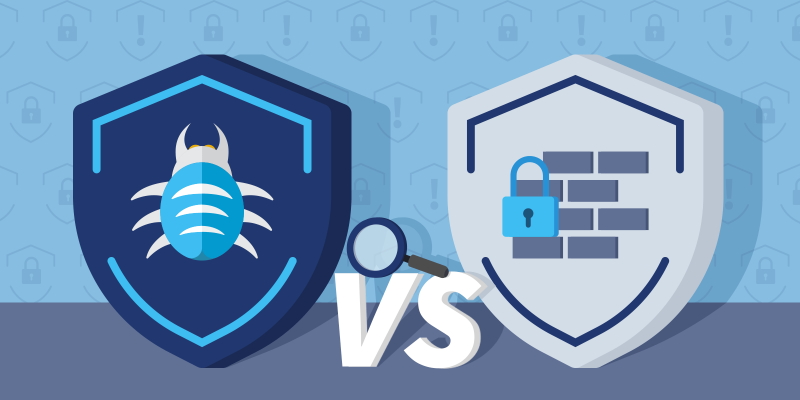Comparing Software and Hardware Antivirus and Firewall Solutions
Antivirus software and firewalls are important tools for protecting computers and networks from malicious software and cyber threats. These tools can be implemented in either software or hardware form, and each has its own benefits and drawbacks.
Antivirus software is designed to detect and remove malware, such as viruses, trojans, and worms, from a computer or network. Antivirus software works by scanning the computer’s files and system for known patterns of malware and quarantining or deleting any that are found. Antivirus software can be installed on a single computer or networked across multiple devices.

One advantage of antivirus software is that it can be easily updated to protect against new and emerging threats. It is also relatively easy to install and configure, and can be purchased at a low cost. However, antivirus software can also have some limitations, such as a higher resource consumption and the potential for false positives.
Hardware antivirus, on the other hand, is a physical device that is installed between the computer and the internet connection. It is specifically designed to detect and block malware from entering the computer or network. Hardware antivirus devices can be effective at protecting against a wide range of threats, including viruses, worms, and other types of malware.
One advantage of hardware antivirus is that it provides an additional layer of protection, as it sits between the computer and the internet connection. This means that malware has to pass through the hardware antivirus before it can reach the computer, giving it an opportunity to block the malware before it can cause any damage. Hardware antivirus devices are also typically easy to install and maintain, and they do not consume as many resources as antivirus software.
However, hardware antivirus devices can also have some drawbacks. They can be more expensive than antivirus software, and they may not be able to protect against all types of malware. In addition, hardware antivirus devices may not be able to keep up with the rapid pace of new and emerging threats, as they may require updates or patches to be installed.
Firewalls are another important tool for protecting computers and networks from cyber threats. A firewall is a network security system that monitors and controls incoming and outgoing network traffic based on predetermined security rules. Firewalls can be implemented in either software or hardware form.
Software firewalls are installed on a single computer and are designed to protect that specific device from incoming threats. They work by blocking incoming traffic from known malicious sources and allowing traffic from trusted sources. Software firewalls can be easily configured and updated, and they are relatively low cost. However, they may not be as effective at protecting against certain types of threats, as they rely on the computer’s resources to function.
Hardware firewalls, on the other hand, are physical devices that are installed between the computer or network and the internet connection. They are designed to protect the entire network from incoming threats and can be more effective at blocking malicious traffic. Hardware firewalls are typically easy to install and maintain, and they do not consume as many resources as software firewalls.
However, hardware firewalls can also have some drawbacks. They can be more expensive than software firewalls, and they may not be able to protect against all types of threats. In addition, hardware firewalls may require updates or patches to be installed to keep up with the rapid pace of new and emerging threats.
In conclusion, both antivirus software and firewalls are important tools for protecting computers and networks from cyber threats. While antivirus software and firewalls can be implemented in either software or hardware form, each has its own benefits and drawbacks. It is important to carefully consider the specific needs and resources of an organization when deciding
